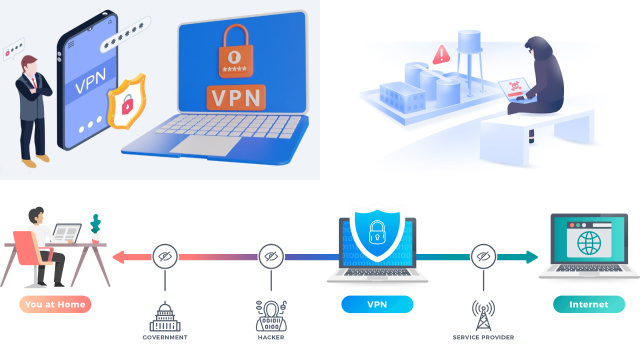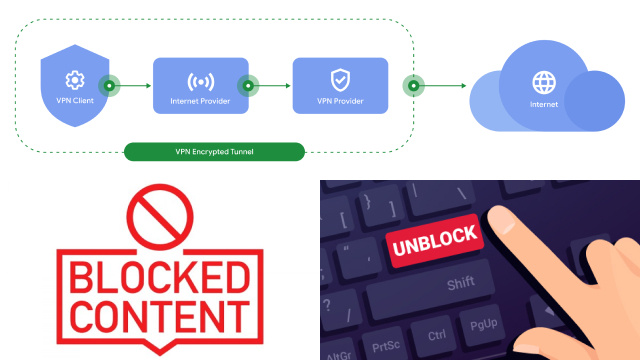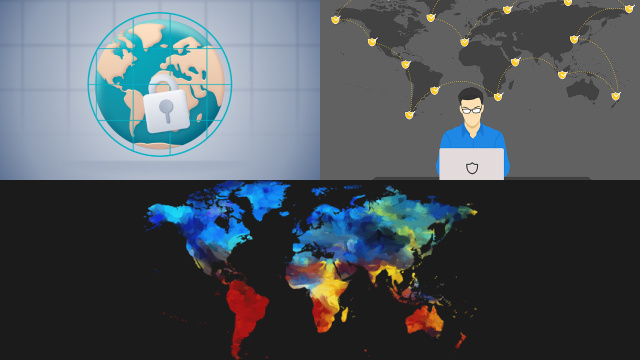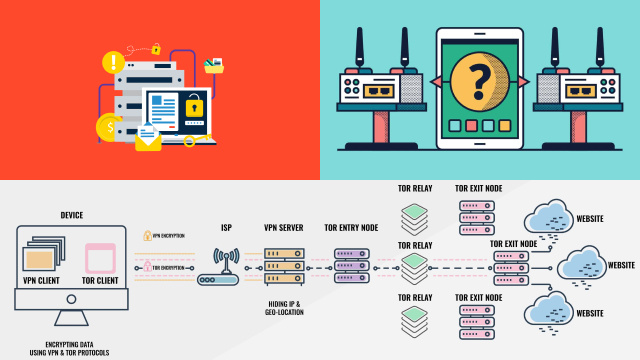Introduction: Understanding the Purpose of VPN
In today’s world, online privacy and security have become increasingly important. With the rise of cyber threats and data breaches, it’s essential to take steps to protect your personal information and online activity. This is where a VPN, or Virtual Private Network, comes in.
A VPN provides a secure and encrypted connection between your device and the internet, ensuring that your online activity remains private and secure. It works by routing your internet traffic through a remote server, masking your IP address and encrypting your data. This helps to protect your online activity from prying eyes, including hackers, cybercriminals, and even your internet service provider.
In addition to online security, a VPN can also help you bypass internet censorship and access geo-restricted content. By masking your IP address and location, a VPN allows you to access content that may not be available in your region.
Overall, a VPN is a powerful tool for protecting your online privacy and security. With so many benefits, it’s no wonder that VPNs have become increasingly popular in recent years.
VPN for Online Privacy: Protecting Your Digital Footprint
Online privacy has become a major concern for internet users around the world. With the increasing amount of personal information shared online, protecting your digital footprint has become more critical than ever. This is where a VPN, or Virtual Private Network, can help.
A VPN provides a secure and encrypted connection between your device and the internet, ensuring that your online activity remains private and secure. It works by masking your IP address and encrypting your internet traffic, making it difficult for third parties to track your online activity.
Using a VPN can help you protect your personal information from hackers, cybercriminals, and even your internet service provider. It can also help you avoid targeted advertising and unwanted data collection.
Overall, a VPN is an essential tool for anyone looking to protect their online privacy and maintain control over their digital footprint. By using a VPN, you can enjoy greater peace of mind knowing that your personal information is secure and your online activity is private.
Bypassing Internet Censorship with a VPN: Accessing Blocked Content
Internet censorship is a growing problem in many countries around the world. Governments, organizations, and even internet service providers often restrict access to certain websites and online content. This can be frustrating for internet users who want to access blocked content. Fortunately, a VPN, or Virtual Private Network, can help bypass internet censorship and access blocked content.
A VPN works by masking your IP address and encrypting your internet traffic, making it difficult for third parties to track your online activity. This makes it possible to access content that may be blocked or restricted in your region.
By using a VPN, you can access websites and online content that may be otherwise inaccessible. This can include social media platforms, news websites, and even streaming services.
Overall, a VPN is a powerful tool for bypassing internet censorship and accessing blocked content. With a VPN, you can enjoy greater freedom and access to information, no matter where you are in the world.
VPN for Secure Online Communication: Encrypting Your Internet Traffic
Online communication has become an integral part of our daily lives. Whether it’s sending an email, making a video call, or chatting with friends, we rely on the internet to stay connected. However, this also means that our online communication is vulnerable to interception and eavesdropping. This is where a VPN, or Virtual Private Network, can help.
A VPN encrypts your internet traffic, making it impossible for anyone to intercept or eavesdrop on your online communication. It works by creating a secure and encrypted connection between your device and the internet, ensuring that your online activity remains private and secure.
By using a VPN, you can protect your online communication from hackers, cybercriminals, and even government surveillance. This is particularly important if you’re communicating sensitive information, such as personal or financial details.
Overall, a VPN is an essential tool for anyone looking to secure their online communication and protect their privacy. By encrypting your internet traffic, a VPN provides a secure and private online experience, no matter where you are in the world.
Accessing Geo-Restricted Content with a VPN: Expanding Your Online Horizons
Have you ever come across a message that says “this content is not available in your country”? This is a common problem faced by internet users who try to access geo-restricted content. Geo-restrictions are imposed by content providers to limit access to their content based on geographic locations. However, with a VPN, or Virtual Private Network, you can bypass these restrictions and access geo-restricted content from anywhere in the world.
A VPN works by masking your IP address and routing your internet traffic through a server in a different country. This makes it appear as though you’re accessing the internet from a different location, allowing you to access content that may be restricted in your region.
By using a VPN, you can access geo-restricted content such as streaming services, social media platforms, and even news websites. This opens up a world of possibilities for internet users, allowing them to expand their online horizons and access content that may not be available in their region.
Overall, a VPN is a powerful tool for accessing geo-restricted content and expanding your online horizons. With a VPN, you can enjoy greater freedom and access to information, no matter where you are in the world.
Choosing the Right VPN Provider: Factors to Consider
When it comes to choosing a VPN provider, there are several factors you need to consider to ensure you’re getting the right service for your needs. Here are some key factors to keep in mind:
- Security: The primary function of a VPN is to keep your internet activity private and secure. Look for a VPN provider that offers robust encryption and other security features such as a kill switch and leak protection.
- Server locations: The more server locations a VPN provider has, the more options you have for accessing geo-restricted content. Make sure the VPN provider you choose has servers in the countries you need to access content from.
- Speed: A VPN can slow down your internet speed due to the extra encryption and routing of your traffic. Look for a VPN provider that offers fast speeds, especially if you plan on streaming or downloading large files.
- Privacy policy: Read the VPN provider’s privacy policy to ensure they don’t log your internet activity or sell your data to third parties.
- Customer support: Look for a VPN provider with reliable customer support, especially if you’re not tech-savvy and need assistance with setting up or troubleshooting your VPN.
By considering these factors, you can choose a VPN provider that meets your needs and provides you with the security and privacy you need to browse the internet safely and freely.
Setting Up a VPN: A Step-by-Step Guide
Setting up a VPN can seem daunting, but with the right guidance, it can be a straightforward process. Here’s a step-by-step guide to setting up a VPN:
- Choose a VPN provider: First, choose a reputable VPN provider that suits your needs.
- Create an account: Once you’ve chosen a VPN provider, create an account and choose a subscription plan.
- Download and install the VPN software: Download and install the VPN software onto your device(s) and follow the installation instructions.
- Log in to the VPN: Once the software is installed, log in to the VPN using your account credentials.
- Choose a server location: Select a server location from the list provided by your VPN provider.
- Connect to the VPN: Click the “Connect” button to establish a connection with the chosen server.
- Test your connection: Test your connection by visiting a website to ensure that your IP address is hidden and your connection is secure.
By following these steps, you can set up a VPN and enjoy safe and secure internet browsing.
Conclusion: Why You Need a VPN in Today’s Digital World
In today’s digital world, a VPN has become an essential tool for protecting your online privacy and security. Whether you’re browsing the internet, streaming content, or communicating online, a VPN helps to ensure that your data is safe from prying eyes.
A VPN allows you to browse the internet anonymously, hiding your IP address and encrypting your internet traffic. This prevents your internet service provider, government, or hackers from tracking your online activities and stealing your personal information.
Moreover, a VPN allows you to access geo-restricted content and bypass internet censorship, opening up a world of possibilities for online entertainment and information. It also helps to secure your communication channels, ensuring that your emails, messages, and calls are private and secure.
Overall, a VPN is a crucial tool for anyone who values their online privacy and security. With the increasing prevalence of cyber threats and privacy violations, investing in a good VPN has become a necessary step for anyone who wishes to stay safe and secure in the digital world.




